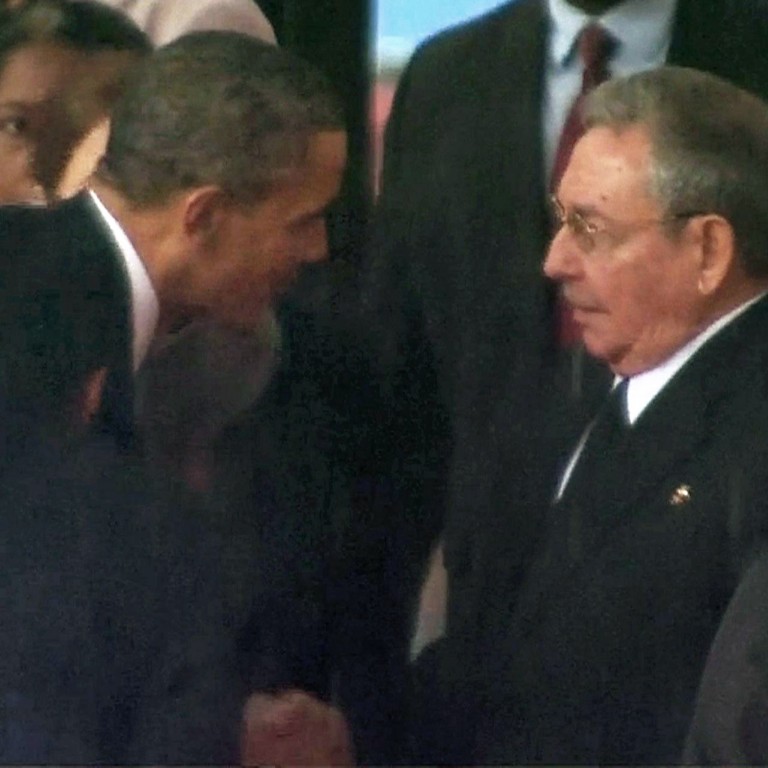
Historic Obama-Castro handshake prompts both hope and derision
Historic Obama-Castro handshake at tribute for Mandela sparks both hope and derision
For sure it's just what Nelson Mandela would have wanted, but does it amount to more than that?
The historic handshake between US President Barack Obama and Cuba's Raul Castro at Mandela's memorial was greeted on the streets of Cuba with surprise and hopes of improved relations.
Reaction was more muted in Miami, where Cuban exiles have had a hard time accepting Mandela's respect for Cuban leader Fidel Castro.
Castro's smile as Obama moved to shake his hand on the way to speak at the ceremony was seen by many Cubans as a signal of reconciliation after more than a half-century of bitter ideological and political differences between the two countries separated by only 145 kilometres.
"I never imagined such a thing could happen," government worker Yesniel Soto, 25, said on her way to work in Havana. "I see it as something that has begun to change, a change we are all hoping for."
It is something that has begun to change, a change we are hoping for
The two presidents' civil behaviour towards one another was the latest sign of a change in tone in the usually hostile rhetoric between the two governments.
The handshake was not planned and the two did no more than exchange greetings, a White House aide said.
"Perhaps the American and Cuban presidents grasp, with this handshake, that the work they have to do together is far easier than South Africa's struggle against apartheid," said Julia Sweig, director for Latin America Studies at the Council on Foreign Relations in New York.
"It can't hurt, but it's not significant," said Philip Peters of the Cuba Research Centre and author of The Cuban Triangle blog. "What matters is whether President Obama will conduct relations as he does with all other countries that have different political systems. That requires a decision, not a handshake."
Cuban state-run television broadcast Tuesday's pressing of the flesh without commentary, simply as part of the footage of Castro's speech at the tribute.
There has been no official comment, but official blogger Yohandry Fontana played up the historic event, tweeting a photo of the handshake.
Some Cuban exiles downplayed the greeting.
"The handshake was unfortunate, but unavoidable and inconsequential," said Mauricio Claver-Clarone, director of Cuba Democracy Advocates in Washington, which promotes human rights.
Mandela was famously snubbed by Cuban exiles in Miami in 1990, when he visited the city after making comments in support of Fidel Castro.
Miami's Cuban-American mayor, Xavier Suarez, declined to honour Mandela with a proclamation or the keys to the city, prompting a three-year boycott of Miami led by African-American community.
During Mandela's 27 years in prison, Castro was a leading voice against apartheid when some other world leaders were reluctant to speak out.

